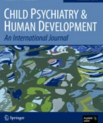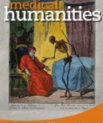The Evolution of Early Symbolic Behavior - eSYMb
Kristian Tylén awarded ERC Consolidator grant

Understanding the unique evolutionary trajectory taken by the human species is impossible without appreciation of our special capacities for symbolic cognition and behaviour. But how did these capacities evolve during the late Middle Palaeolithic? Within only the last couple of decades, early milestones in human symbolic behavior have been continuously revised as new archaeological excavations across the globe challenge previous long-held assumption. However, at the same time we have made little progress in our understanding of past symbolic behaviour and the mechanisms by which it evolved. As tools of the mind, symbols are constituted by the intangible cognitive processes they evoke in pragmatic use contexts, which are inaccessible to the standard methods of archaeology or genetics. With eSYMb, Kristian Tylén aims to establish a novel integrative framework for the systematic investigation of early symbolic evolution directly frontloading records from archaeology in experimental investigations and computational modelling based on state-of-the-art methods from the cognitive sciences.
Starting from the assumption that symbolic artefacts evolve adaptively over time to better fulfil their intended functions, Kristian and his team of four postdocs will investigate structural changes to symbolic artefacts and their cognitive implications to inform inferences about their past use. The framework will thus establish transparent, data-driven methods and criteria to test – for the first time - concrete hypotheses about early human symbolic behaviour from archaeological sites across the world focussing on the later part of human evolution (~150.000 – 12.000 years ago) based on measures critical to symbolic cognition and behaviour.
Find out more about the project in this recent interview (Danish).



